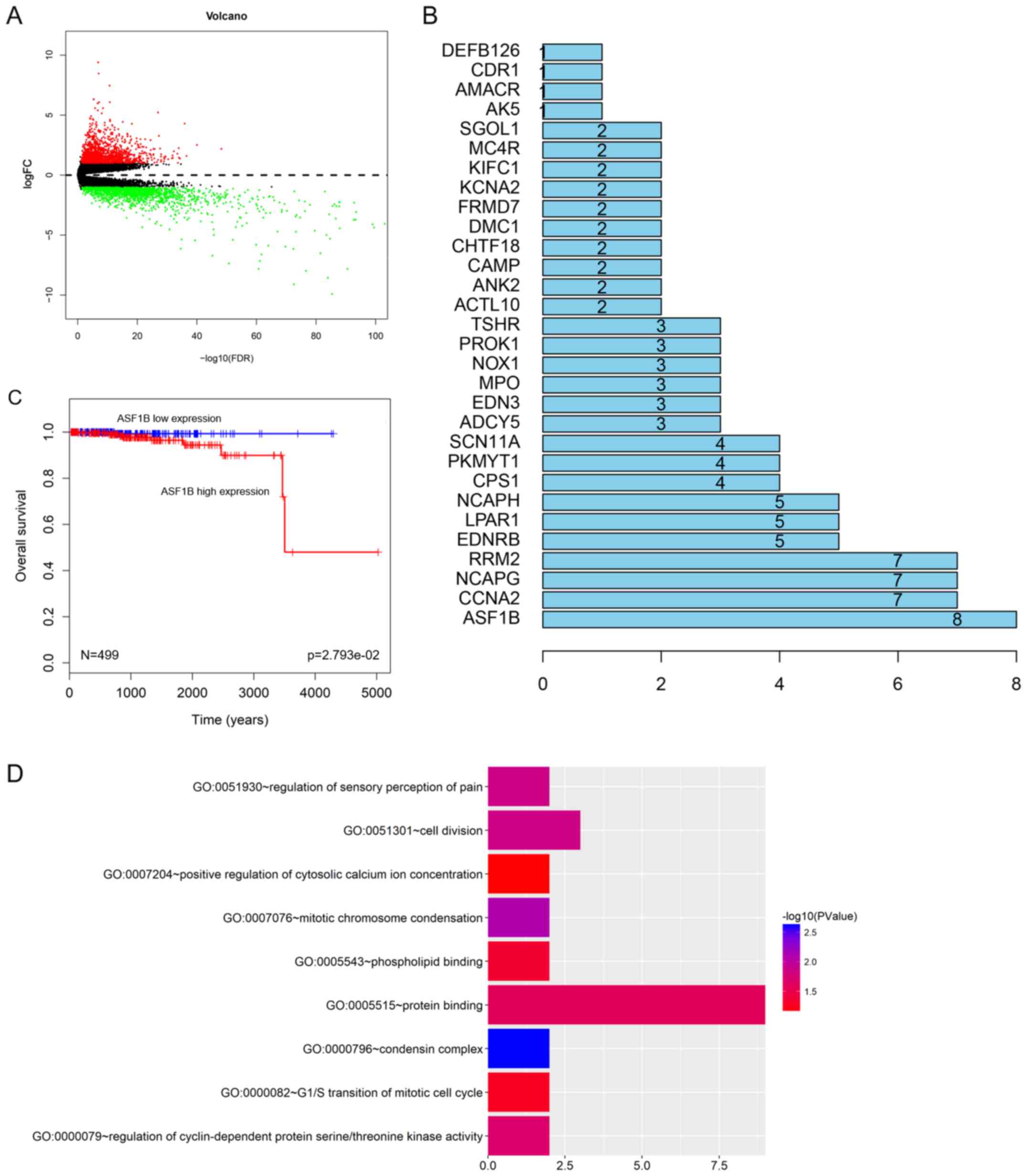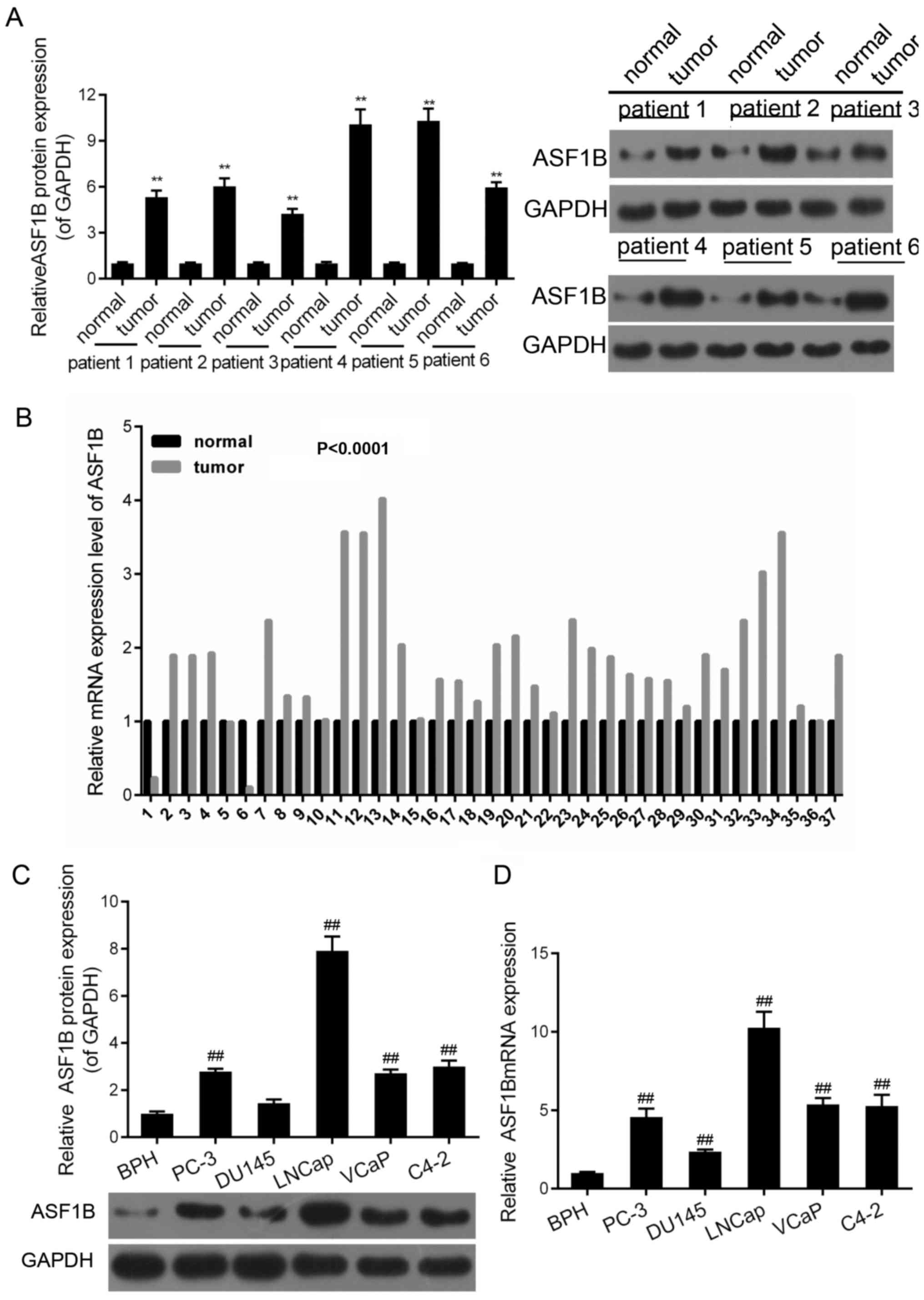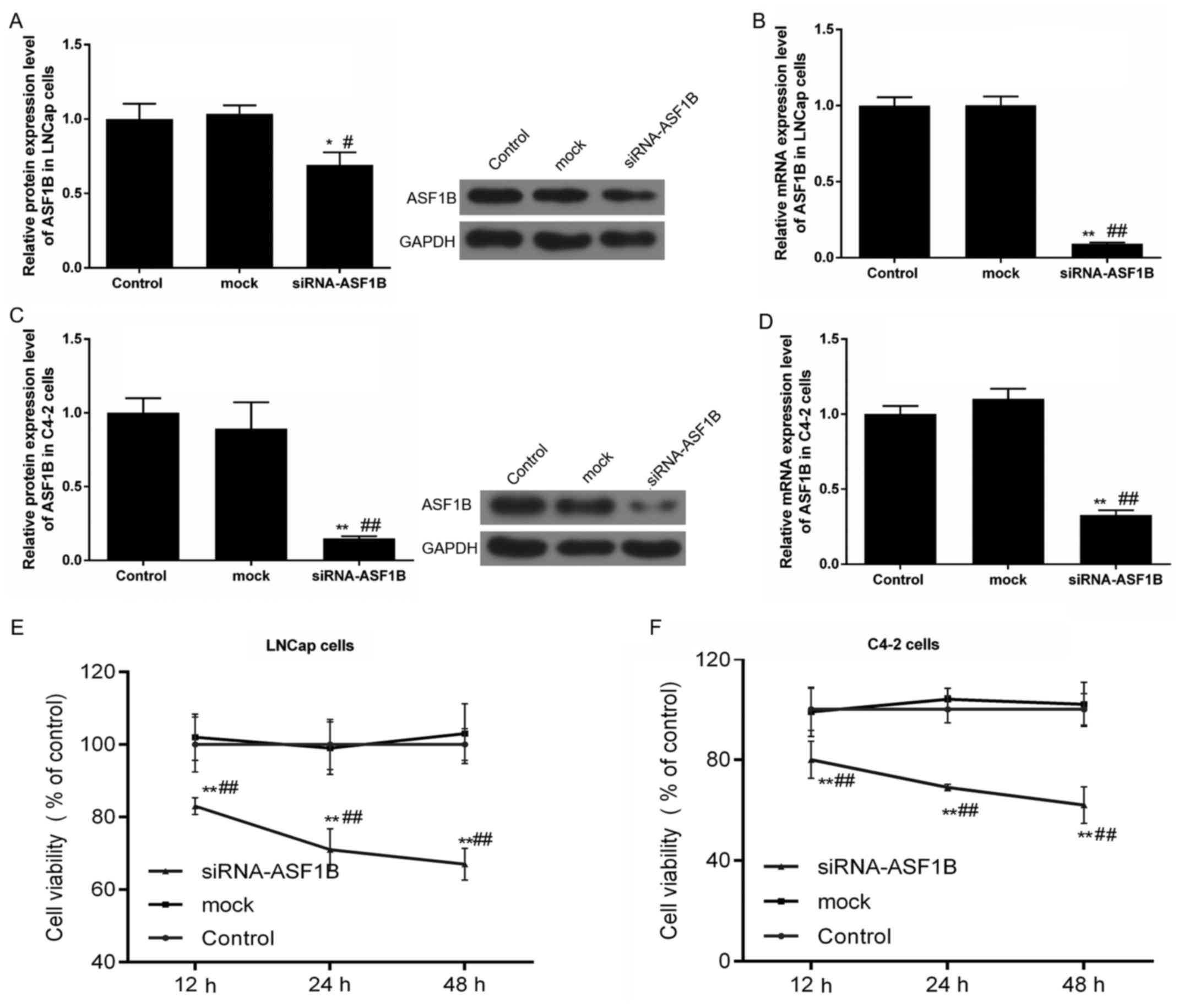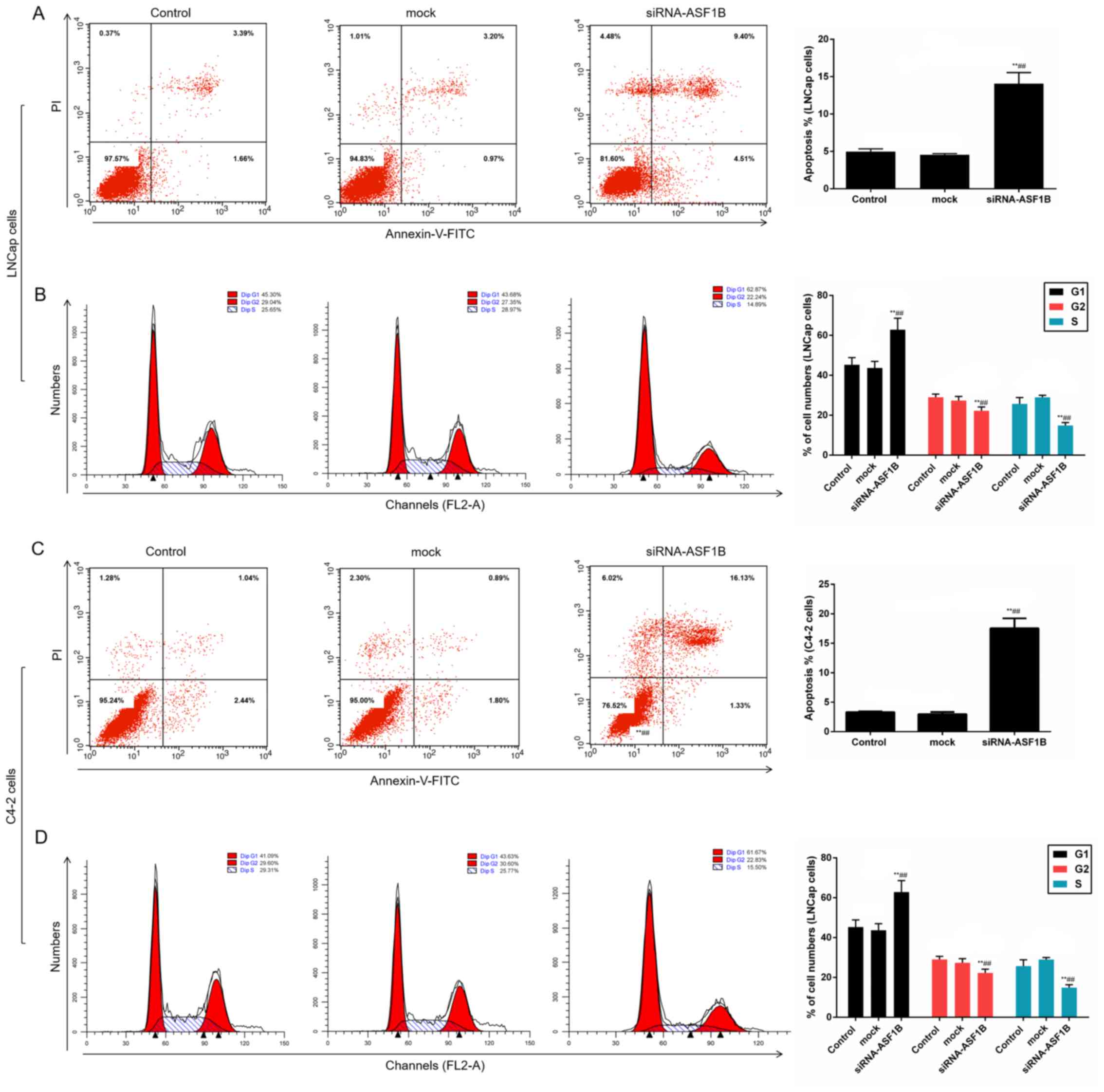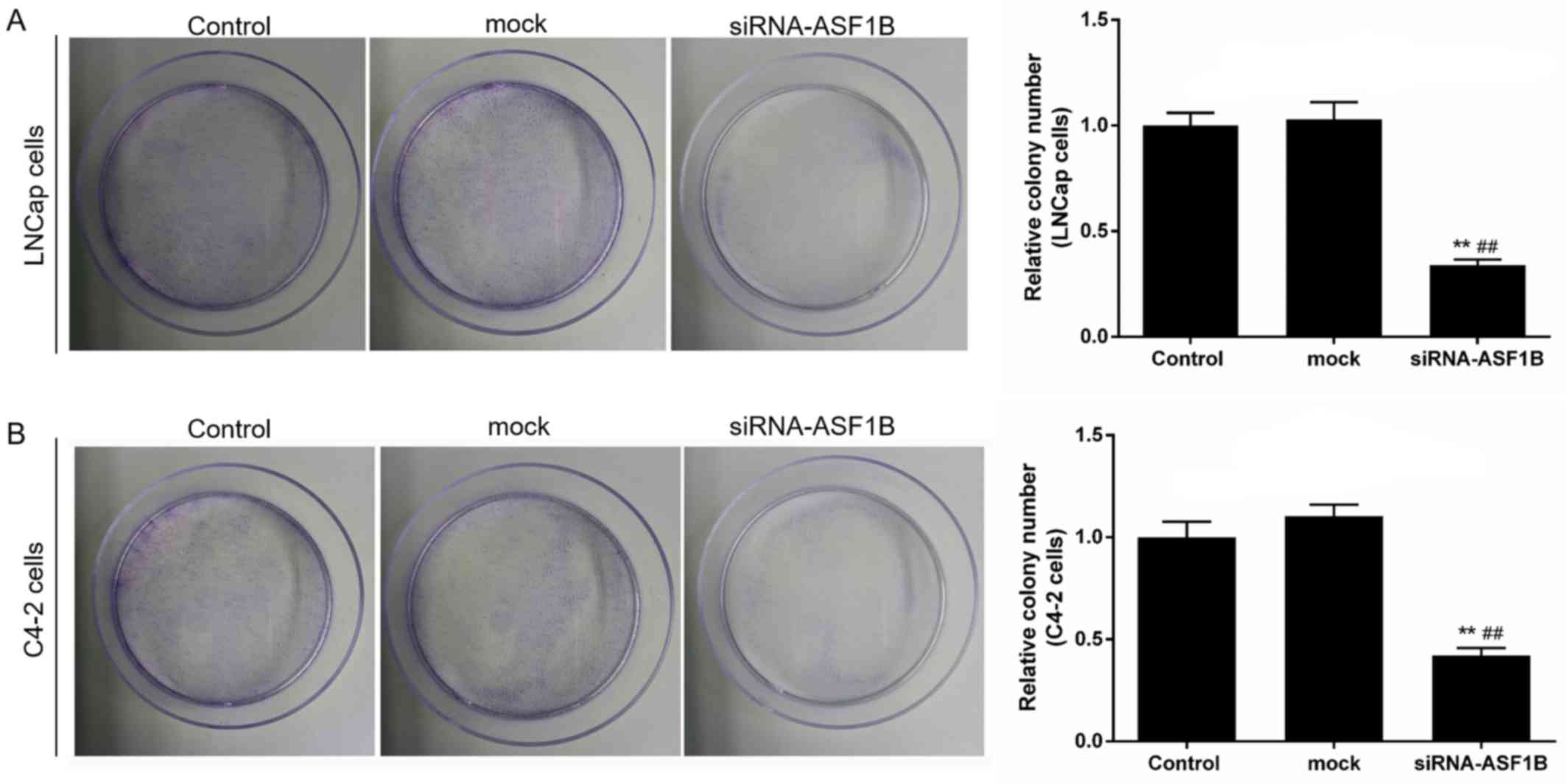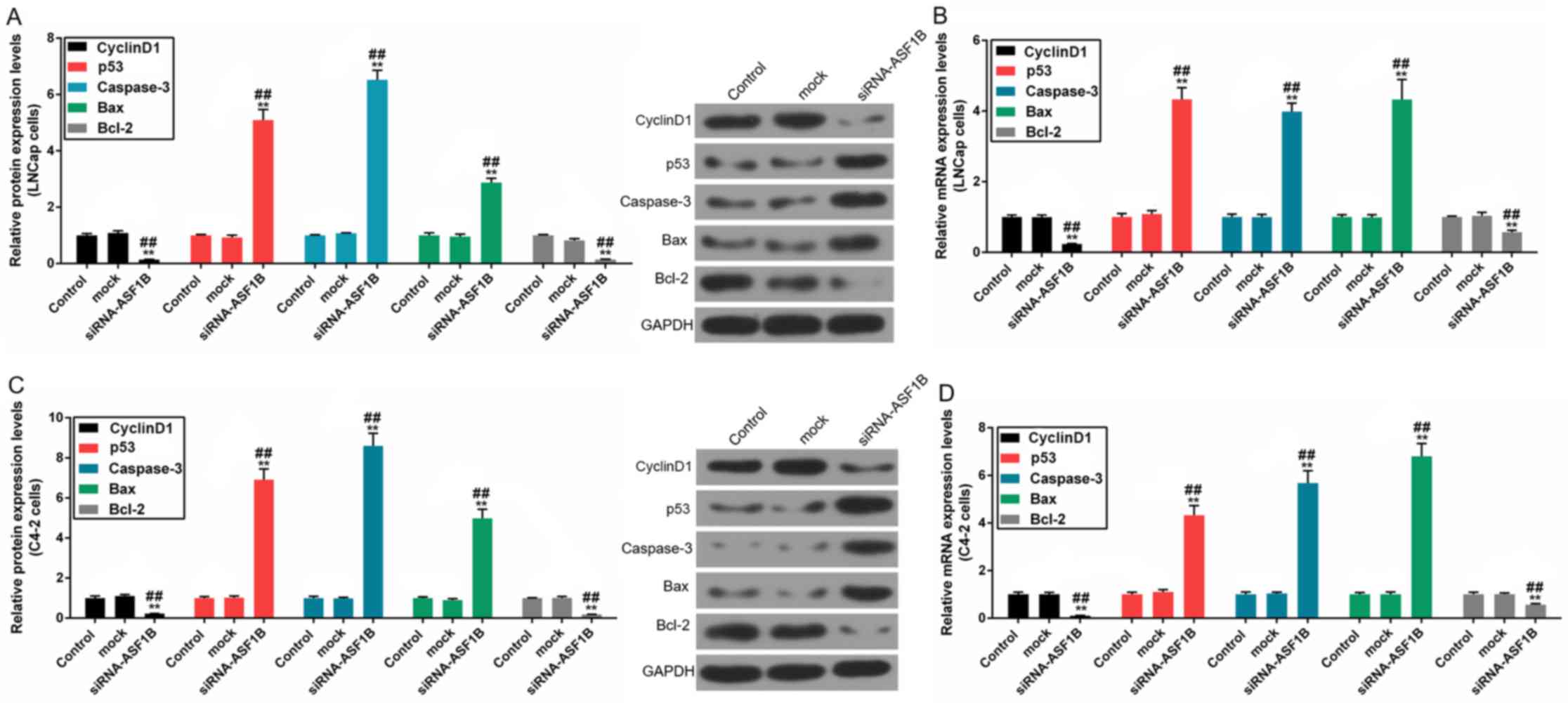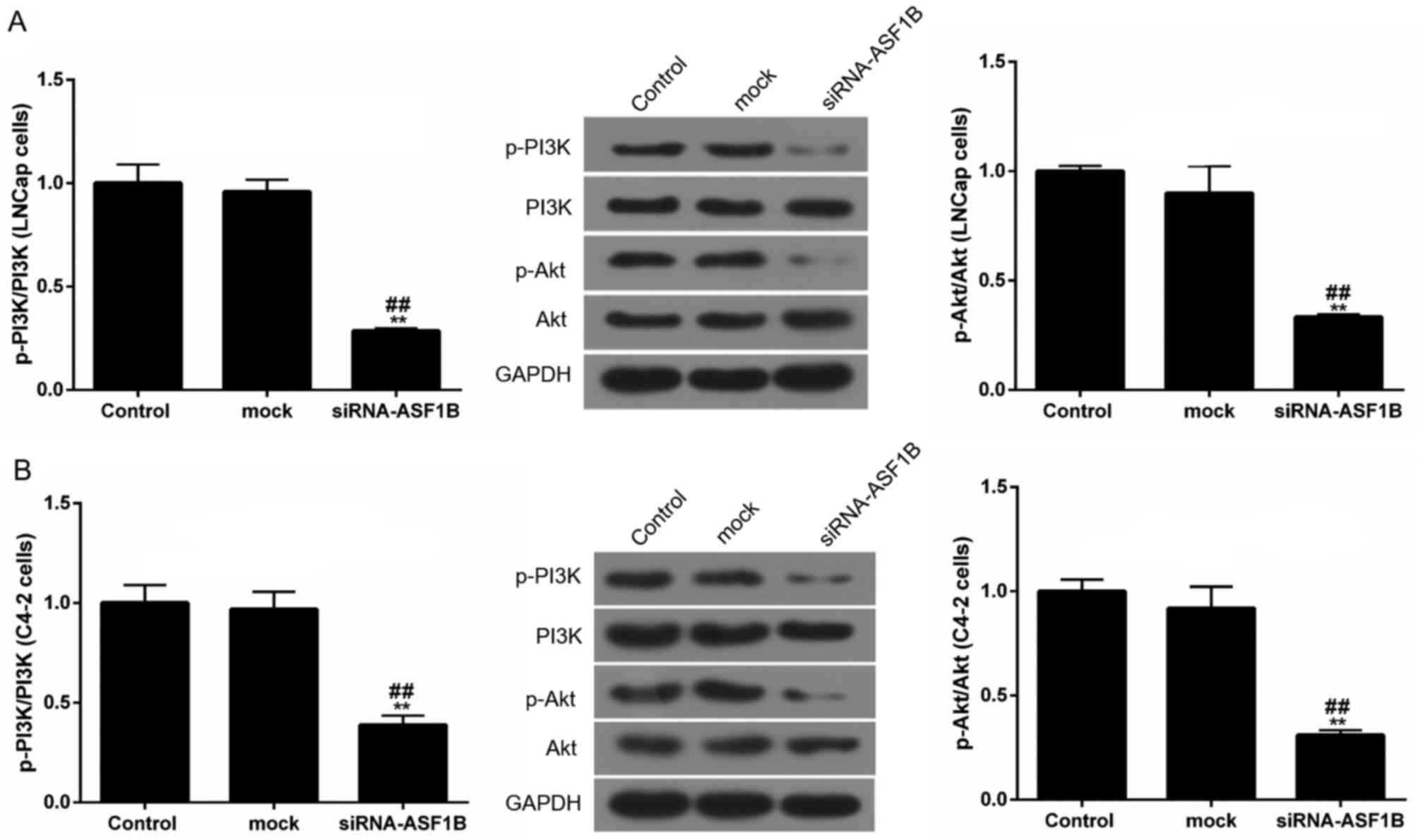|
1
|
Pérez-Rambla C, Puchades-Carrasco L,
García-Flores M, Rubio- Briones J, López-Guerrero JA and
Pineda-Lucena A: Non-invasive urinary metabolomic profiling
discriminates prostate cancer from benign prostatic hyperplasia.
Metabolomics. 13:522017. View Article : Google Scholar : PubMed/NCBI
|
|
2
|
Bell KJ, Del Mar C, Wright G, Dickinson J
and Glasziou P: Prevalence of incidental prostate cancer: A
systematic review of autopsy studies. Int J Cancer. 137:1749–1757.
2015. View Article : Google Scholar : PubMed/NCBI
|
|
3
|
Hoffman KE, Chen MH, Moran BJ,
Braccioforte MH, Dosoretz D, Salenius S, Katin MJ, Ross R and
D'Amico AV: Prostate cancer-specific mortality and the extent of
therapy in healthy elderly men with high-risk prostate cancer.
Cancer. 116:2590–2595. 2010. View Article : Google Scholar : PubMed/NCBI
|
|
4
|
Rim SH, Hall IJ, Massetti GM, Thomas CC,
Li J and Richardson LC: Primary care providers' intended use of
decision aids for prostate-specific antigen testing for prostate
cancer screening. J Cancer Educ. 2018. View Article : Google Scholar : PubMed/NCBI
|
|
5
|
Shin H, Park YH, Kim YG, Lee JY and Park
J: Aqueous two-phase system to isolate extracellular vesicles from
urine for prostate cancer diagnosis. PLoS One. 13:e01948182018.
View Article : Google Scholar : PubMed/NCBI
|
|
6
|
Li XX, Zhang YG, Wang D, Chen YF and Shan
YH: Preventive effects of aspirin on cardiovascular complications
in prostate cancer cases after endocrinotherapy. Asian Pac J Cancer
Prev. 16:4909–4913. 2015. View Article : Google Scholar : PubMed/NCBI
|
|
7
|
Liu Q, Tong D, Liu G, Yi Y, Xu J, Yang X,
Wang L, Zhang J, Ye J, Zhang Y, et al: A novel BRCA2 mutation in
prostate cancer sensitive to combined radiotherapy and androgen
deprivation therapy. Cancer Biol Ther. 19:669–675. 2018. View Article : Google Scholar : PubMed/NCBI
|
|
8
|
Sheng MX, Wan LL, Liu CM, Liu CX and Chen
SS: Cytoreductive cryosurgery in patients with bone metastatic
prostate cancer: A retrospective analysis. Kaohsiung J Med Sci.
33:609–615. 2017. View Article : Google Scholar : PubMed/NCBI
|
|
9
|
Augello G, Balasus D, Fusilli C, Mazza T,
Emma MR, Giannitrapani L, Agliastro R, Cervello M and Montalto G:
Association between MICA gene variants and the risk of hepatitis C
virus-induced hepatocellular cancer in a sicilian population
sample. OMICS. 22:274–282. 2018. View Article : Google Scholar : PubMed/NCBI
|
|
10
|
Concolino A, Olivo E, Tammè L, Fiumara CV,
De Angelis MT, Quaresima B, Agosti V, Costanzo FS, Cuda G and
Scumaci D: Proteomics analysis to assess the role of mitochondria
in BRCA1- mediated breast tumorigenesis. Proteomes. 6:62018.
View Article : Google Scholar
|
|
11
|
Xu Y, Zhang C, Liang H, Hu S, Li P, Liu L,
Duan X, Chen C, Zhang Y and Dai P: Dishevelled 1, a pivotal
positive regulator of the Wnt signalling pathway, mediates
5-fluorouracil resistance in HepG2 cells. Artif Cells Nanomed
Biotechnol. Mar 27–2018.Epub ahead of print. View Article : Google Scholar
|
|
12
|
Bohlen J, McLaughlin SL, Hazard-Jenkins H,
Infante AM, Montgomery C, Davis M and Pistilli EE: Dysregulation of
metabolic-associated pathways in muscle of breast cancer patients:
Preclinical evaluation of interleukin-15targeting fatigue. J
Cachexia Sarcopenia Muscle. 2018. View Article : Google Scholar
|
|
13
|
Kalimuthu S, Zhu L, Oh JM, Lee HW,
Gangadaran P, Rajendran RL, Baek SH, Jeon YH, Jeong SY, Lee SW, et
al: Regulated mesenchymal stem cells mediated colon cancer therapy
assessed by reporter gene based optical imaging. Int J Mol Sci.
19:192018. View Article : Google Scholar
|
|
14
|
Liu H, Schreiber SL and Stockwell BR:
Targeting dependency on the GPX4 lipid peroxide repair pathway for
cancer therapy. Biochemistry. 57:2059–2060. 2018. View Article : Google Scholar : PubMed/NCBI
|
|
15
|
Tremblay-LeMay R, Rastgoo N and Chang H:
Modulating PD-L1 expression in multiple myeloma: An alternative
strategy to target the PD-1/PD-L1 pathway. J Hematol Oncol.
11:462018. View Article : Google Scholar : PubMed/NCBI
|
|
16
|
Das SK, Pradhan AK, Bhoopathi P, Talukdar
S, Shen XN, Sarkar D, Emdad L and Fisher PB: The MDA-9/Syntenin/
IGF-1R/STAT3 axis directs prostate cancer invasion. Cancer Res.
78:2852–2863. 2018. View Article : Google Scholar : PubMed/NCBI
|
|
17
|
Karbasforooshan H, Roohbakhsh A and Karimi
G: SIRT1 and microRNAs: The role in breast, lung and prostate
cancers. Exp Cell Res. 367:1–6. 2018. View Article : Google Scholar : PubMed/NCBI
|
|
18
|
Li P, You S, Nguyen C, Wang Y, Kim J,
Sirohi D, Ziembiec A, Luthringer D, Lin SC, Daskivich T, et al:
Genes involved in prostate cancer progression determine MRI
visibility. Theranostics. 8:1752–1765. 2018. View Article : Google Scholar : PubMed/NCBI
|
|
19
|
Sehrawat A, Gao L, Wang Y, Bankhead A III,
McWeeney SK, King CJ, Schwartzman J, Urrutia J, Bisson WH, Coleman
DJ, et al: LSD1 activates a lethal prostate cancer gene network
independently of its demethylase function. Proc Natl Acad Sci USA.
115:E4179–E4188. 2018.PubMed/NCBI
|
|
20
|
Brufsky AM and Dickler MN: Estrogen
receptor-positive breast cancer: Exploiting signaling pathways
implicated in endocrine resistance. Oncologist. 23:528–539. 2018.
View Article : Google Scholar : PubMed/NCBI
|
|
21
|
Mohammadi A, Amooeian VG and Rashidi E:
Dysfunction in brain-derived neurotrophic factor signaling pathway
and susceptibility to schizophrenia, Parkinson's and Alzheimer's
diseases. Curr Gene Ther. 18:45–63. 2018. View Article : Google Scholar : PubMed/NCBI
|
|
22
|
Danielsen SA, Eide PW, Nesbakken A, Guren
T, Leithe E and Lothe RA: Portrait of the PI3K/AKT pathway in
colorectal cancer. Biochim Biophys Acta. 1855.104–121. 2015.
|
|
23
|
Toren P and Zoubeidi A: Targeting the
PI3K/Akt pathway in prostate cancer: Challenges and opportunities
(Review). Int J Oncol. 45:1793–1801. 2014. View Article : Google Scholar : PubMed/NCBI
|
|
24
|
Liu ST, Hui G, Mathis C, Chamie K, Pantuck
AJ and Drakaki A: The current status and future role of the
phosphoinositide 3 kinase/ AKT signaling pathway in urothelial
cancer: An old pathway in the new immunotherapy era. Clin
Genitourin Cancer. 16:e269–e276. 2018. View Article : Google Scholar
|
|
25
|
Pompura SL and Dominguez-Villar M: The
PI3K/AKT signaling pathway in regulatory T-cell development,
stability, and function. J Leukoc Biol. 103:1065–1076. 2018.
View Article : Google Scholar
|
|
26
|
Ramakrishnan V and Kumar S: PI3K/AKT/mTOR
pathway in multiple myeloma: From basic biology to clinical
promise. Leuk Lymphoma. Jan 11–2018.Epub ahead of print. View Article : Google Scholar : PubMed/NCBI
|
|
27
|
Seol JH, Song TY, Oh SE, Jo C, Choi A, Kim
B, Park J, Hong S, Song I, Jung KY, et al: Identification of small
molecules that inhibit the histone chaperone Asf1 and its chromatin
function. BMB Rep. 48:685–690. 2015. View Article : Google Scholar : PubMed/NCBI
|
|
28
|
De Koning L, Corpet A, Haber JE and
Almouzni G: Histone chaperones: An escort network regulating
histone traffic. Nat Struct Mol Biol. 14:997–1007. 2007. View Article : Google Scholar : PubMed/NCBI
|
|
29
|
Umehara T and Horikoshi M: Transcription
initiation factor IID-interactive histone chaperone CIA-II
implicated in mammalian spermatogenesis. J Biol Chem.
278:35660–35667. 2003. View Article : Google Scholar : PubMed/NCBI
|
|
30
|
Corpet A, De Koning L, Toedling J,
Savignoni A, Berger F, Lemaître C, O'Sullivan RJ, Karlseder J,
Barillot E, Asselain B, et al: Asf1b, the necessary Asf1 isoform
for proliferation, is predictive of outcome in breast cancer. EMBO
J. 30:480–493. 2011. View Article : Google Scholar :
|
|
31
|
Rosty C, Sheffer M, Tsafrir D, Stransky N,
Tsafrir I, Peter M, de Crémoux P, de La Rochefordière A, Salmon R,
Dorval T, et al: Identification of a proliferation gene cluster
associated with HPV E6/E7 expression level and viral DNA load in
invasive cervical carcinoma. Oncogene. 24:7094–7104. 2005.
View Article : Google Scholar : PubMed/NCBI
|
|
32
|
Mens MMJ and Ghanbari M: Cell cycle
regulation of stem cells by MicroRNAs. Stem Cell Rev. 14:309–322.
2018. View Article : Google Scholar : PubMed/NCBI
|
|
33
|
Uzquiano A, Gladwyn-Ng I, Nguyen L, Reiner
O, Götz M, Matsuzaki F and Francis F: Cortical progenitor biology:
Key features mediating proliferation versus differentiation. J
Neurochem. Mar 23–2018.Epub ahead of print. View Article : Google Scholar : PubMed/NCBI
|
|
34
|
Jiang H, Zhu Y, Zhou Z and Xu J, Jin S, Xu
K, Zhang H, Sun Q, Wang J and Xu J: PRMT5 promotes cell
proliferation by inhibiting BTG2 expression via the ERK signaling
pathway in hepatocellular carcinoma. Cancer Med. 7:869–882. 2018.
View Article : Google Scholar : PubMed/NCBI
|
|
35
|
Leem DG, Shin JS, Kim KT, Choi SY, Lee MH
and Lee KT: Dammarane-type triterpene ginsenoside-Rg18 inhibits
human non-small cell lung cancer A549 cell proliferation via G1
phase arrest. Oncol Lett. 15:6043–6049. 2018.PubMed/NCBI
|
|
36
|
Yue Y, Yuan Y, Li L, Fan J, Li C, Peng W
and Ren G: Homeobox protein MSX1 inhibits the growth and metastasis
of breast cancer cells and is frequently silenced by promoter
methylation. Int J Mol Med. 41:2986–2996. 2018.PubMed/NCBI
|
|
37
|
Zhang Y, Chen S, Wei C, Rankin GO,
Rojanasakul Y, Ren N, Ye X and Chen YC: Dietary compound
proanthocyanidins from Chinese bayberry (Myrica rubra Sieb. et
Zucc.) leaves inhibit angiogenesis and regulate cell cycle of
cisplatin-resistant ovarian cancer cells via targeting Akt pathway.
J Funct Foods. 40:573–581. 2018. View Article : Google Scholar : PubMed/NCBI
|
|
38
|
Lin CL, Lee CH, Chen CM, Cheng CW, Chen
PN, Ying TH and Hsieh YH: Protodioscin induces apoptosis through
ROS-mediated endoplasmic reticulum stress via the JNK/p38
activation pathways in human cervical cancer cells. Cell Physiol
Biochem. 46:322–334. 2018. View Article : Google Scholar : PubMed/NCBI
|
|
39
|
Park CH, Han SE, Nam-Goong IS, Kim YI and
Kim ES: Combined effects of Baicalein and Docetaxel on apoptosis in
8505c anaplastic thyroid cancer cells via downregulation of the ERK
and Akt/mTOR pathways. Endocrinol Metab (Seoul). 33:121–132. 2018.
View Article : Google Scholar
|
|
40
|
Torres RG, Casanova L, Carvalho J,
Marcondes MC, Costa SS, Sola-Penna M and Zancan P: Ocimum basilicum
but not Ocimum gratissimum present cytotoxic effects on human
breast cancer cell line MCF-7, inducing apoptosis and triggering
mTOR/Akt/ p70S6K pathway. J Bioenerg Biomembr. 50:93–105. 2018.
View Article : Google Scholar : PubMed/NCBI
|
|
41
|
Beberok A, Wrześniok D, Rok J, Rzepka Z,
Respondek M and Buszman E: Ciprofloxacin triggers the apoptosis of
human triple- negative breast cancer MDA-MB-231 cells via the
p53/Bax/ Bcl-2 signaling pathway. Int J Oncol: Mar. 8:2018Epub
ahead of print. View Article : Google Scholar
|
|
42
|
Mirakhor Samani S, Ezazi Bojnordi T,
Zarghampour M, Merat S and Fouladi DF: Expression of p53, Bcl-2 and
Bax in endometrial carcinoma, endometrial hyperplasia and normal
endometrium: A histopathological study. J Obstet Gynaecol. Mar
21–2018.Epub ahead of print. View Article : Google Scholar : PubMed/NCBI
|
|
43
|
Alotaibi MR, Hassan ZK, Al-Rejaie SS,
Alshammari MA, Almutairi MM, Alhoshani AR, Alanazi WA, Hafez MM and
Al-Shabanah OA: Characterization of apoptosis in a breast cancer
cell line after IL-10 silencing. Asian Pac J Cancer Prev.
19:777–783. 2018.PubMed/NCBI
|
|
44
|
Hu M, Li F and Wang W: Vitexin protects
dopaminergic neurons in MPTP-induced Parkinson's disease through
PI3K/Akt signaling pathway. Drug Des Devel Ther. 12:565–573. 2018.
View Article : Google Scholar : PubMed/NCBI
|
|
45
|
Tsai TC, Lai KH, Su JH, Wu YJ and Sheu JH:
7-Acetylsinumaximol B induces apoptosis and autophagy in human
gastric carcinoma cells through mitochondria dysfunction and
activation of the PERK/eIF2α/ATF4/CHOP signaling pathway. Mar
Drugs. 16:E1042018. View Article : Google Scholar
|
|
46
|
Almouzni G and Corpet A: Asf1b as a
prognosis marker and therapeutic target in human cancer. US
2013/0149320 A1. Filed May 31, 2011; issued June 13, 2013.
|
|
47
|
Davis WJ, Lehmann PZ and Li W: Nuclear
PI3K signaling in cell growth and tumorigenesis. Front Cell Dev
Biol. 3:242015. View Article : Google Scholar : PubMed/NCBI
|
|
48
|
Zhu X, Li Z, Li T, Long F, Lv Y, Liu L,
Liu X and Zhan Q: Osthole inhibits the PI3K/AKT signaling pathway
via activation of PTEN and induces cell cycle arrest and apoptosis
in esophageal squamous cell carcinoma. Biomed Pharmacother.
102:502–509. 2018. View Article : Google Scholar : PubMed/NCBI
|
|
49
|
Wu Z, Zhu Q, Yin Y, Kang D, Cao R, Tian Q,
Zhang Y, Lu S and Liu P: Traditional Chinese Medicine CFF-1 induced
cell growth inhibition, autophagy, and apoptosis via inhibiting
EGFR-related pathways in prostate cancer. Cancer Med. 7:1546–1559.
2018. View Article : Google Scholar : PubMed/NCBI
|















